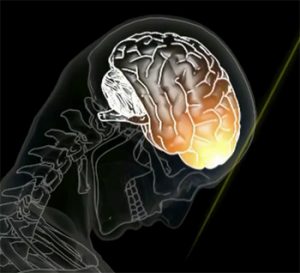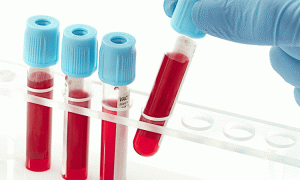Not a simple brain bruise
Concussions are serious brain injuries resulting from an impact to the head. This “sloshing” of the brain induces a change in neurochemistry beginning with a change in ion flux between different neurons. Abnormal brain cell activity activates an immune response in the brain and inflammation occurs. Oxidative stress from inflammation causes toxic proteins in cells to build up and promote cell death. Clearly, this series of events is nothing to take lightly. There is much more going on the in the brain than a simple bruise and many different pathways interact in the brain’s frantic rush to recover.

Unfortunately, the tests we have today mostly rely on subjective information from the patient. This leads to a variety of problems with proper diagnosis and severity of the injury. Athletes with concussions often say anything that will help them get back on the field, and often lie about their condition. Today, there are a few objective tests that can be used to determine the severity of concussion.
Concussion assessments
Many high schools and colleges around the U.S. require students to take a baseline test for concussions. These tests ask questions relating to the student’s ability to spatially rotate objects, memorize words, and reaction time. Once the student has a baseline score, it can then be used to compare with the score the student gets after he or she takes the test again after a concussion. If there is a significant drop in performance, it is understood that the student has a concussion. Although these tests do provide some information about the severity of concussions, there are some flaws. For one, some people may perform poorly on the baseline test either because they are simply bad at taking tests or because they want to set the bar low on purpose. This would provide insignificant results if the student were to take the test again after a concussion. Also, staring at a screen for a 30 minute test is the last thing you should do after experiencing a concussion. A more definitive objective test is necessary.
Biomarkers for concussions
Recent research of biomarkers has revealed promising information on developing a blood test for concussions. It was found that the S100-beta protein spikes in concentration shortly after a concussion and can be used as a marker for concussive symptoms.² This protein is a product of glial cells after attending to mild traumatic brain injuries. Shortly after injury, microglia and astrocytes work tirelessly to attempt to heal the brain by releasing all sorts of proteins that prevent cell death. One of these proteins, s100-beta, is able to pass through the blood brain barrier and enter the peripheral blood stream.

4.
Measuring this proteins is easy, accurate, cost effective, and mildly invasive. Being able to see what is going on in the brain without actually invading brain tissue would be huge for the field of concussion research. This way, we could test to see if people are telling the truth about their concussive symptoms through a simple blood test.
Main takeaway
Concussions are severely dangerous injuries that are often overlooked by society. Many think that they can just tough out the symptoms of concussions and return back to normal in a couple days. Recent research has suggested otherwise. Permanent damage of cognition can result from concussions if treated improperly so it is crucial to follow all instructions by your doctor before returning to normal life.
Sources:
- https://www.ncbi.nlm.nih.gov/pmc/articles/PMC3520152/
- https://www.ncbi.nlm.nih.gov/pmc/articles/PMC5003664/
- https://www.uclahealth.org/brainsport/sports-concussions
- https://www.europeanpharmaceuticalreview.com/news/78008/blood-test-heart-attack/